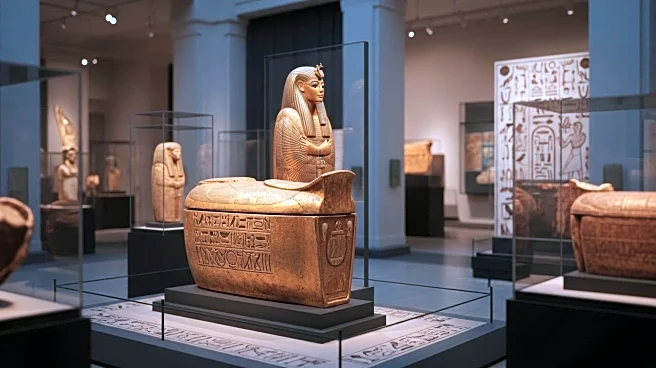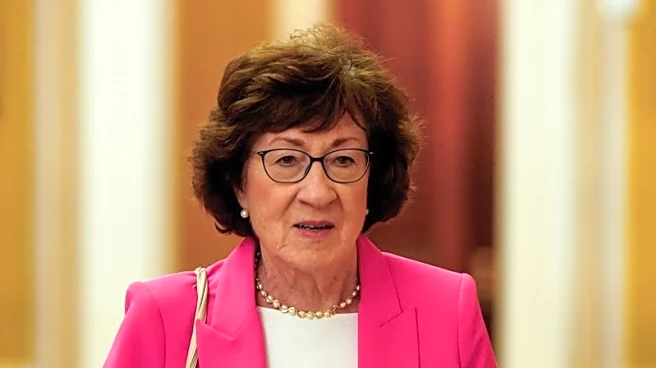What's Happening?
Khaled el-Enany, an Egyptian academic and former minister, has been nominated by UNESCO's executive board to become the next director-general of the United Nations cultural agency. This nomination marks the potential appointment of the first director-general from the Arab world. El-Enany's nomination will be voted on by all UNESCO member states at the general conference in Samarkand, Uzbekistan, on November 6. If elected, he will succeed Audrey Azoulay, who has served since 2017. El-Enany, a professor of Egyptology, has expressed intentions to bring the United States back into UNESCO after the U.S. Department of State announced plans to withdraw from the organization, citing national interest concerns. The withdrawal is expected to take effect on December 31, 2026, potentially causing a significant budget shortfall for UNESCO.
Why It's Important?
The nomination of Khaled el-Enany as UNESCO's director-general is significant as it could influence the organization's future direction, especially regarding U.S. involvement. The U.S. withdrawal from UNESCO could impact the agency's financial stability and its ability to carry out cultural and educational programs globally. El-Enany's focus on fostering consensus and depoliticized deliberations may help bridge divides and encourage international cooperation. His commitment to fighting antisemitism and religious intolerance aligns with UNESCO's mission to promote peace and cultural understanding. The outcome of the upcoming vote will determine whether UNESCO can maintain its influence and continue its work in preserving cultural heritage worldwide.
What's Next?
The next steps involve the voting process at UNESCO's general conference in November, where member states will decide on El-Enany's appointment. If elected, El-Enany will need to address the challenges posed by the U.S. withdrawal and work towards securing alternative funding sources to mitigate budgetary impacts. His leadership will be crucial in navigating geopolitical tensions and ensuring UNESCO's programs remain effective and inclusive. The decision may also prompt reactions from other member states, potentially influencing their engagement with UNESCO and its initiatives.
Beyond the Headlines
El-Enany's potential leadership at UNESCO could have broader implications for cultural diplomacy and international relations. His background in Egyptology and experience in managing cultural institutions may bring a unique perspective to UNESCO's efforts in heritage preservation. Additionally, his approach to fostering dialogue and consensus could serve as a model for other international organizations facing similar challenges. The situation underscores the importance of cultural agencies in promoting global cooperation and understanding amidst political and economic shifts.









